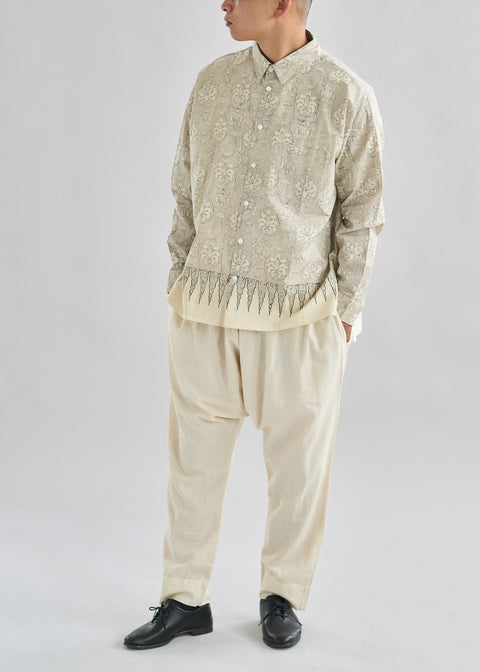
モデル身長172cm
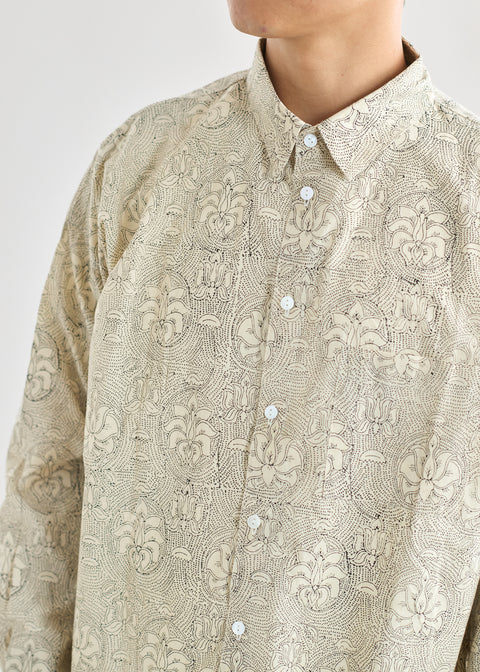
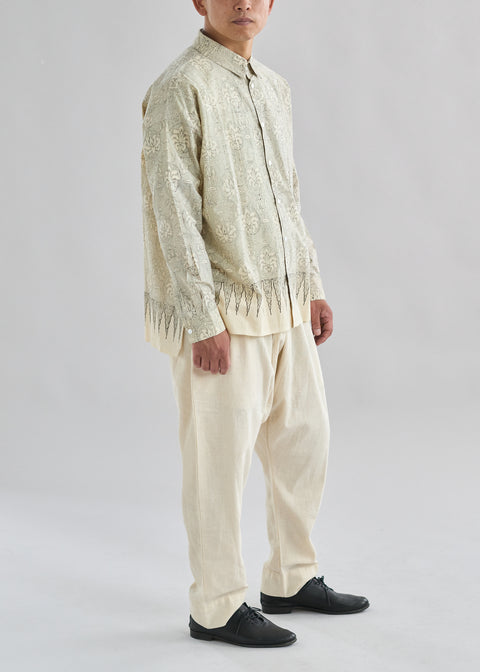
モデル身長172cm
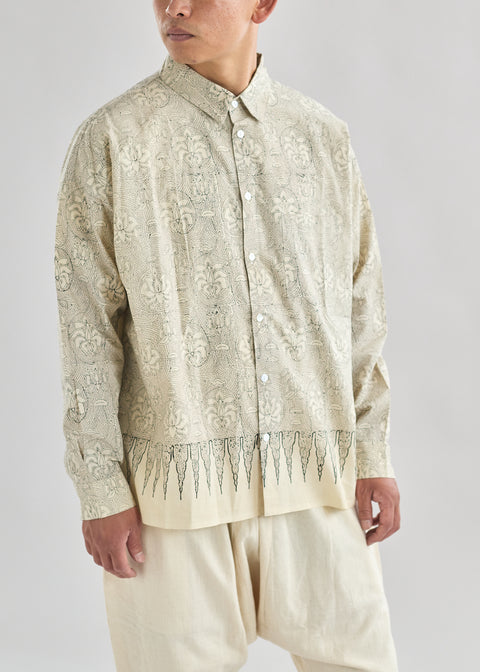
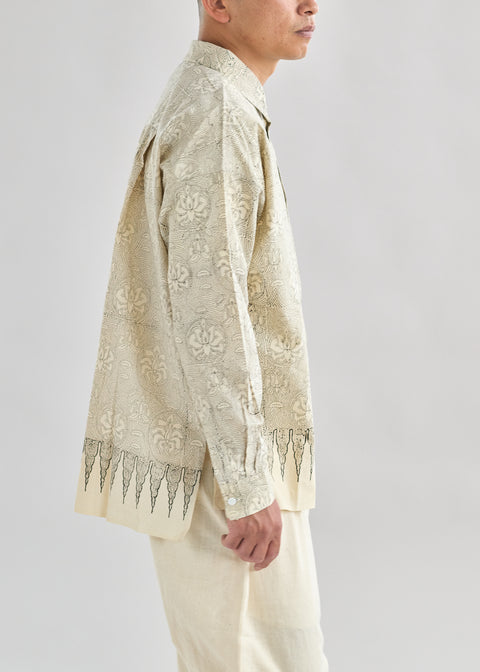
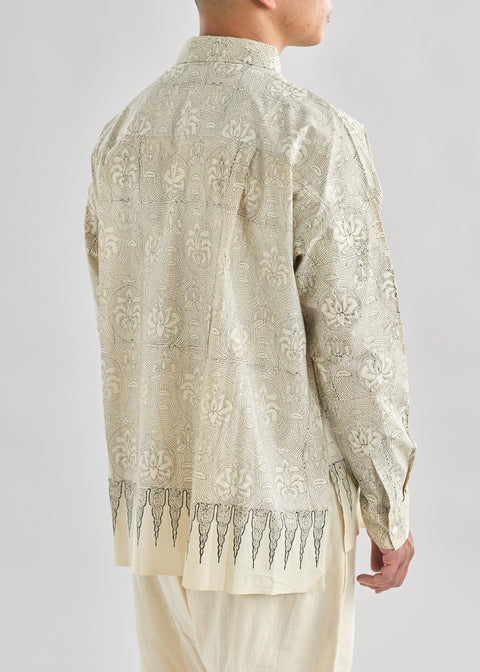
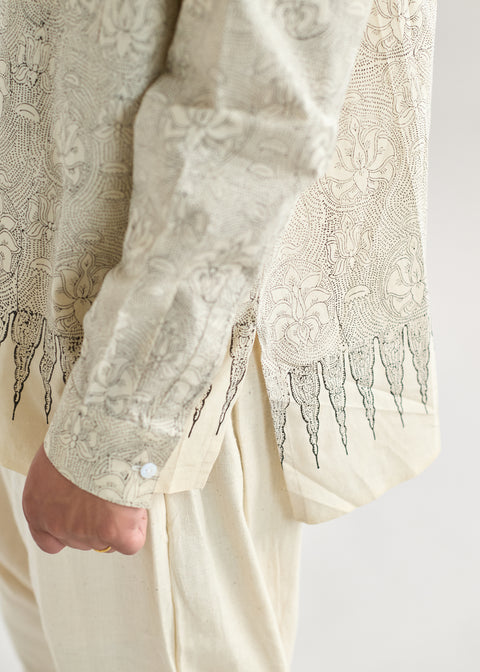
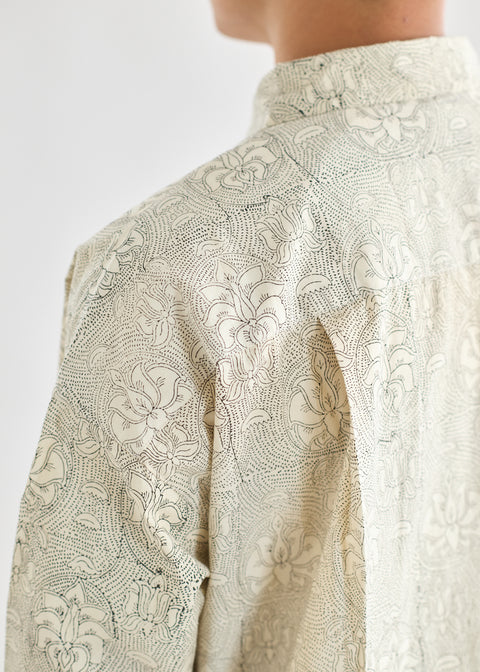
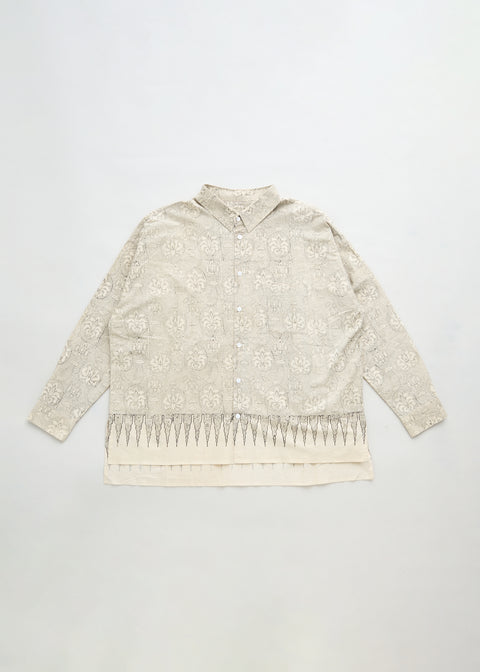
Kowatari Sarasa Long Sleeve Big Shirt
*This product is unisex. Please be sure to check the size details.
Product Description
Kowatari Sarasa pattern came to Japan from the Coromandel region of India (present-day Andhra Pradesh and Tamil Nadu) around the 18th century via Java and other places. This series reproduces the intricate hand-painted patterns known as Goma-de, along with the Ajrakh-dyed Sufiyan Ismail Khatri, on brass plates.
The fabric is made from machine-woven Cambric cotton to allow for the fine patterns to be expressed.
This is a loose-fitting shirt.
The square cut hem makes it easy to wear as a light jacket.
size
Width : approx. 70 cm , Sleeve length : approx. 85 cm , Length : approx. 70 cm ( front ) / 76 cm ( back )
*See size guide here .
*Size and color may differ from the actual product.
raw materials
cotton
Production area
Kutch, Gujarat
How the design works
Designed in collaboration with CALICO
spinning thread
Machine spinning
Weaving
Machine weaving
dyed
Block printing ( printing with traditional dyes )
Before you purchase
* This product is also carried in the stores, so it may occasionally be sold out at the time of your order through the website. Unfortunately if that the product is out of stock after you placing the order, we will contact you. We appreciate your understanding.
* Hand-spun yarn is mainly made by women in the village using an efficient modern spinning wheel called an “Amber Charka.” When the yarn breaks, it is spun by hand, resulting in neps, which is a characteristic feature.
* Most of hand-spun and handwoven fabrics are produced in village huts, and as a result, threads or grass may occasionally be mixed in. Additionally, there may be uneven areas, wrinkles, or slight discoloration caused by thread breaks, as well as unavoidable minor stains. Please understand that these are characteristic features of those fabrics.
* Depending on the material, friction during use may cause pilling or fuzziness. Excessive friction or pressure can cause a fabric damage, so please avoid such a situation.
* We use natural or traditional dyes (including synthetic dyes) and dye with the traditional methods. Please note that the color may vary slightly depending on the craftsman's sense and environmental factors. The color will gradually fade with use, giving it a unique patina.
* In case the fabric is dyed using natural and/or dark-colored dyes, please note it may fade or transfer color due to friction, rain, or sweat, etc. Please be careful when wearing light-colored clothing or carrying light-colored bags, or when using them with furniture.
* We recommend washing at home with a neutral detergent in cold water and drying in the shade. If using a washing machine, please use a laundry net.

